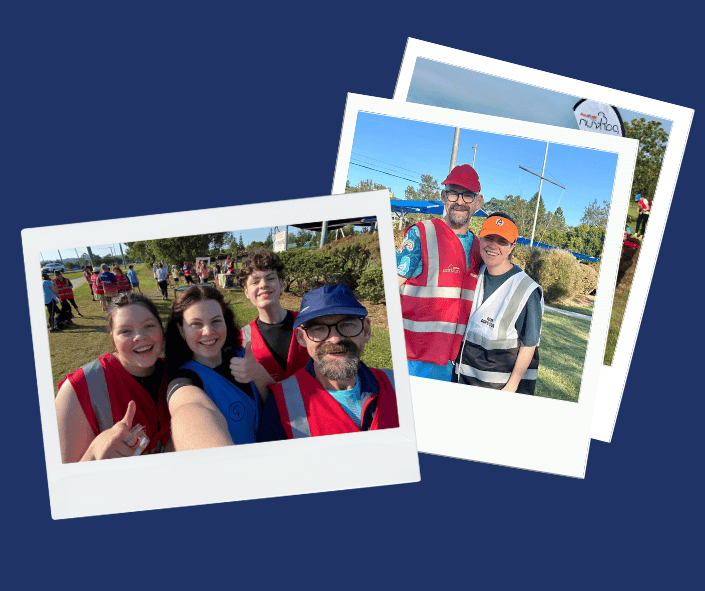In this article, we share the top 4 most popular RPL qualifications for the 23/24 financial year.
RPL is short for Recognition of Prior Learning. It is the process of turning your career experience into national qualifications. Something we’ve been specialists at since 2006.

In our 18 years of business, we have issued over 27,500 qualifications through RPL to talented people all over Australia.
During that time, we have seen the types of qualifications required change as the needs of the working world continually evolve, so we always like to reflect on what is most in demand right now.
Top 4 Most Popular RPL Qualifications for 23/24
In the past 12 months the top 4 most in demand qualifications gained through RPL were:
- BSB50420 Diploma of Leadership and Management
- BSB51319 Diploma of Work Health and Safety
- BSB50820 Diploma of Project Management
- CPP50619 Diploma of Security Risk Management
Apply here or call us on 1300 793 002 to check your eligibility for these and more national qualifications. (The appraisal is zero-cost!)
In today’s increasingly competitive workforce, being recognised for what you already know is career gold, especially when it’s time to apply for a promotion or new job.
You will find more information on these qualifications below.
The School of Life
Sometimes, you fall into a career straight after school.
Maybe you were recruited into an organisation like the ADF, Police, or you went into the family business, or applied for a job on a whim and got it. Maybe you went to uni, or just straight into the workforce.

Maybe you did that job for a while, and built a life around it.
It might not have been the most fulfilling work, but there were parts you got satisfaction from, and while you didn’t jump out of bed in anticipation of getting to work every day, you weren’t unhappy…
Maybe you started a family, bought a home, and your financial obligations grew.
But, as they grew – so did the pressure to keep that job that didn’t really engage you.
It’s probably been ten or twenty years or so, now? That’s a lot of your life spent doing something that you’re actually only half-hearted about.
How to Transition Careers
(Hint, take your transferable skills with you!)
Studying takes a lot of time, and a lot of money. Not many of us can afford to put our lives or income on hold to start from scratch in a new industry.
The good news is – you don’t have to.

In that 10 or 20 years you were working, you developed some specific skills that were pertinent to your industry.
And you also developed transferable skills – that you can apply to any industry!
Recognition of Prior Learning (RPL) means you don’t have to sit in a classroom and learn things you already know (and have been doing for years)!
Instead, the knowledge, skills, training and experience that you have accrued is assessed and matched to nationally recognised qualifications that could take you into just about any industry, without the time, expense or effort of studying.
Getting RPL also means that you could shift sideways into a new career, without taking a step back down the ladder in terms of your seniority, pay grade or level of responsibility.
If you have decided to take that sideways step into a new industry, the best qualifications for bridging that gap are generalist rather than industry-specific. Accordingly, we’ve compiled a list of the most versatile qualifications that we commonly award people through RPL.
Top 4 Most Popular RPL Qualifications
BSB51918 Diploma of Leadership and Management

Operating at a diploma level in leadership and management, you will be balancing two key areas: overseeing people and tracking the development of strategy at an operational level so that policies and procedures have your input and expertise.
At the diploma level you must be able to demonstrate an ability to apply practical skills, experience and knowledge in a leadership and management capacity in a range of contexts.
You possess judgement and initiative in organising, planning, monitoring, and implementing your work and the work of others.
Your communication skills support teams and individuals to achieve organisational objectives. You create solutions to problems, analyse data from complex sources and identify opportunities for improvements.
BSB51319 Diploma of Work Health and Safety

To complete the Diploma of Work Health and Safety through Recognition of Prior Learning (RPL), you need to demonstrate that you have the skills and knowledge to manage risks (including identifying hazards), manage legal responsibilities in a WHS context, and investigate and report on health and safety incidents.
The diploma level is also a proactive contributor to the workplace: not just responding to incidents, but educating and leading initiatives to improve health and safety measures in a workplace.
There is a focus on your communication skills, analytical abilities to resolve WHS problems that may be complex and using your best judgement to make decisions.
You will have people who report to you on WHS issues and look to you for direction and resolutions.
To be eligible to enrol in the Diploma of Work Health and Safety you need to have the five core units from the Certificate IV in Work Health and Safety. You can have older versions of these units provided they have been deemed equivalent.
BSB50820 Diploma of Project Management

At the Diploma level you are someone who is able to apply project management skills in a leadership capacity.
You may have managed projects in a number of contexts and industries. You have experience at the management and leadership level and are responsible for project objectives.
You have well established project management knowledge and a range of specialist, managerial and technical skills.
You use your skills to plan, implement and review your own work and that of a team.
There are no pre-requisites to enrol in the Diploma of Project Management. It is comprised of 12 units of competency – eight of which are core units (compulsory) and four elective units (which allows some range to match your experience or interests to particular units).
CPP50619 Diploma of Security Risk Management

The role of a Risk Manager sits at a Diploma level, as a general rule. Risk Managers are responsible for communicating risk policies and the overall policies and procedures for an organisation that minimise and manage risks.
This includes development of risk models, monitoring and improving controls to ensure there is effective risk management at an operational and strategic level.
To achieve these outcomes, a Risk Manager is going to need to ensure extensive and appropriate research and quantitative and qualitative analysis has occurred.
Risk Managers must have the business skills to communicate effectively through a range of reports, negotiations and educational presentations, balanced with savvy business and operational knowledge.
To complete the Diploma of Security Risk Management through Recognition of Prior Learning (RPL), you need to demonstrate at least two years experience in:
- Establishing and maintaining an occupational health and safety system
- Coordinating security operations
- Assessing security risk management options
- Ensuring team effectiveness in a security/risk management environment








